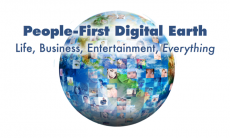Bill Gates has expressed serious concerns about artificial intelligence and its threat to humanity, commenting on Elon Musk’s $10 million investment in support of research that keeps AI beneficial to humanity. People are starting to become concerned that the machines we create will eventually be able to turn around on us and betray the trust we have placed in them for so many years. Though the alarm bells have been rung, machines continue to grow wittier as time passes.
Data mining is becoming more efficient with increased processing power, artificially-created neural networks are actually starting to beat humans at things, and robots are no longer simply taking their first steps; they are leaping and running.
Do we see a future in which we have a fully self-aware Skynet? Or is there one already? Is this necessarily bad? Well, as far as the enterprise space is concerned at this moment, AI is more than welcome!
For the first time, we are seeing something similar to AI in the business world. It resides within an umbrella of services known as enterprise automation. Most recently, we have seen moves like Indian software consulting giant Infosys absorbing a US-based enterprise automation provider called Panaya for $200 million.
Looking into Panaya.com, we can see that the start-up provides a series of services that address several backend aspects of businesses, including ERP testing, ERP upgrade cycles, as well as code error tracking and bug sniffing to name a few. All of these services allow flesh-and-blood humans to gain a vertical top-down view of their businesses in ways that would have not been possible without an enormous amount of effort. So, why did Infosys purchase this company?
The acquisition by the Indian consultancy firm was part of a strategy to include more automated processes into other pieces of its own puzzle, including finance and software development. Big Data and analytics software are both very powerful tools on their own that provide the groundwork that enterprises use to make their decisions. With enterprise automation, however, the field grows wider, allowing firms to gain an even broader view into their operations. Giving software more of the grunt work that is involved in assessing business processes translates to lower resource allocation in this particular area.
In the end, it seems that we are getting closer to artificial intelligence within the enterprise, and we might not even notice it. We’re plugging in less man-hours, yet we’re gaining deeper insight because of the software that’s doing the work for us. We’re already interfacing several different technologies into one pot: big data, distributed computing, business intelligence, CRM, etc. And we may continue to add more into this giant amoeba we are creating. The advent of the Internet of Things is already paving the way to an even more integrated future. Soon, we may even have software that acts as a fully-autonomous executive that advises CEOs directly.
It’s inevitable. Technology in the enterprise is going to reach a point where it will be indistinguishable from AI. It is at this point that we ask ourselves: are Bill Gates and Stephen Hawking onto something, or are we headed for a future in which human troubles (both in the enterprise and consumer spaces) will be nigh eliminated?




